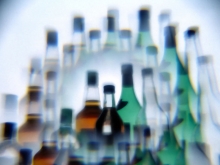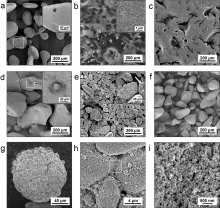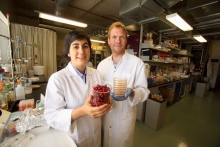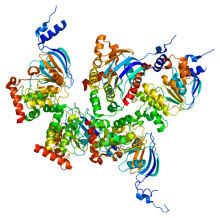Overnight flights across the Atlantic, graveyard shifts, stress-induced insomnia are all prime culprits in keeping us from getting a good night’s sleep. Thanks to new research from McGill University and Concordia University, however, these common sleep disturbances may one day be put to bed.

Researchers at McGill University have found that sodium – the main chemical component in table salt – is a unique “on/off” switch for a major neurotransmitter receptor in the brain. This receptor, known as the kainate receptor, is fundamental for normal brain function and is implicated in numerous diseases, such as epilepsy and neuropathic pain.

Research from McGill University suggests that people who are vulnerable to developing alcoholism exhibit a distinctive brain response when drinking alcohol, according to a new study by Prof. Marco Leyton, of McGill University’s Department of Psychiatry. Compared to people at low risk for alcohol-use problems, those at high risk showed a greater dopamine response in a brain pathway that increases desire for rewards. These findings, published in the journal Alcoholism: Clinical & Experimental Research, could help shed light on why some people are more at risk of suffering from alcoholism and could mark an important step toward the development of treatment options.

A new network that is bringing together expertise from universities, government and industry is implementing a new vision for training the next generation of medical physicists. Ultrasounds, X-rays, MRIs and nuclear medicine are only a few examples of the essential contributions of medical physicists. The field of medical physics applies the principles of physics to medicine, from diagnosis to treatment, and seeks to quickly transform scientific discovery into clinical applications. Medical physicists are also clinical health care professionals providing service in fields such as radiation therapy, medical imaging, nuclear medicine or radiation protection, to name a few.
McGill is looking into a recent phishing attack that targeted the McGill community. Phishing is an attempt to acquire an individual’s personal information by masquerading as a legitimate or trustworthy entity. In this most recent case, an email sent to McGill staff and students starting July 11 directed users to a website that looked very much like the Minerva website and asked them to supply their McGill username and McGill password and/or their McGill ID and PIN.

Recent technological developments in genomics have revealed a large number of genetic influences on common complex diseases, such as diabetes, asthma, cancer or schizophrenia. However, discovering a genetic variant predisposing to a disease is only a first step. To apply this knowledge towards prevention or cure, including tailoring treatment to the patient’s genetic profile –also known as personalized medicine – we need to know how this genetic variant affects health.

Researchers at McGill University have discovered a new way to join materials together using ultrasound. Ultrasound – sound so high it cannot be heard – is normally used to smash particles apart in water. In a recent study, the team of researchers, led by McGill professor Jake Barralet, from the faculties of Dentistry and Medicine, found that if particles were coated with phosphate, they could instead bond together into strong agglomerates, about the size of grains of sand. Their results are published in the journal Advanced Materials.

It happens to all of us at least once each winter in Montreal. You’re walking on the sidewalk and before you know it you are slipping on a patch of ice hidden under a dusting of snow. Sometimes you fall. Surprisingly often, you manage to recover your balance and walk away unscathed. McGill University researchers now understand what’s going on in the brain when you manage to recover your balance in these situations. And it is not just a matter of good luck.

Only 11% of drugs that enter clinical trials in humans are ultimately found safe and effective enough to receive regulatory approval.

The Economist issued its first-ever global EMBA rankings, placing the McGill-HEC Montreal EMBA program 29th in the world.

Consuming cranberry products has been anecdotally associated with prevention of urinary tract infections (UTIs) for over 100 years. But is this popular belief a myth, or scientific fact?

Cystic fibrosis is caused by a mutation in the gene that encodes a particular protein, known as the cystic fibrosis transmembrane conductance regulator (or CFTR). Although this discovery was made 25 years ago and the lives of those with the disease have been extended, there is still no effective cure for the disease. Now new information about the nature of the most common form of mutation in the CFTR gene, gathered by a research team led by Dr. Gergely Lukacs of the Department of Physiology at McGill University, offers exciting new avenues for improving the treatment of the disease.
What allows certain plants to survive freezing and thrive in the Canadian climate, while others are sensitive to the slightest drop in temperature? Those that flourish activate specific genes at just the right time -- but the way gene activation is controlled remains poorly understood.

The very system that is meant to protect the body from invasion may be a traitor. These new findings of a study, led by investigators at the Research Institute of the McGill University Health Centre (RI-MUHC), reveal that infection-fighting white blood cells play a role in activating cancer cells and facilitating their spread to secondary tumours. This research, published today in the Journal of Clinical Investigatiohas significant implications for both the diagnosis and treatment of cancer.

